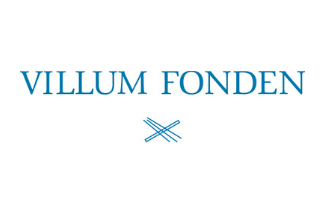Seven researchers ready to challenge the norm
There may well be important research breakthroughs in what we previously thought of as a dead end. The Villum Experiment programme has encouraged technical and natural science research projects that challenge norms and could potentially change the way we approach important topics. Funding has just been awarded, and seven researchers at the Faculty of Natural Sciences (Nat), will receive a total of almost DKK 14 million.

Research environments abound with ingenuity and quirky ideas. The Experiment Programme is the veritable wonderland of curiosity-driven research, writes the VILLUM FOUNDATION about this year's grants for new approaches and wild ideas.
The focal point of the Villum Experiment is to give researchers an opportunity to explore projects that do not fit into the traditional boxes for research funding. The foundation deviates from the usual assessment approaches in the programme, making high-risk funding available to allow researchers to test new ideas and approaches.
When applications are processed, they are anonymised for the assessment panel. Consequently, the 21 international assessors have not been able to consider applicants’ CVs and academic qualifications, but have assessed the research ideas solely on the basis of whether they challenge the norm and could potentially change the world and our knowledge about it.
The grants amount to DKK 1-2 million and will run for up to two years. The programme is advertised annually in open competition, and the application deadline is in March.
At Nat seven researchers receives approx. two million each:
Associate professor Aurelien Dantan For the project ”Nanoguitars under pressure” at the The Department of Physics and Astronomy.
Professor Mingdong Dong, iNANO, for his project ”Microsecond Fluidic Force-Spectroscopy for Single-Cell Virology (S-Viro)”.
Professor Charles Lesher, Department of Geoscience, for the project ”Laboratory simulation of extrasolar lava worlds”.
Assistant professor Ugo Marzocchi from the Department of Biology for the project ”Influence of electric fields on the movement of ions in aquatic sediments (e-Move)”.
Postdoc Gabriel Antonio Minero, iNANO, for his project called ”Coil’n’Roll – Secret Life of Circular DNA in biofilms”
Assistant professor Georgios Pothoulakis, iNANO, for a project called “Programmable nuclear organization using RNA kissing loops”.
Associate professor Tobias Weidner from the Department of Chemistry for the project ”Taking clues from rock and trash to prevent marine biofouling”.
Read more about the project at the VILLUM FOUNDATION via this link.
